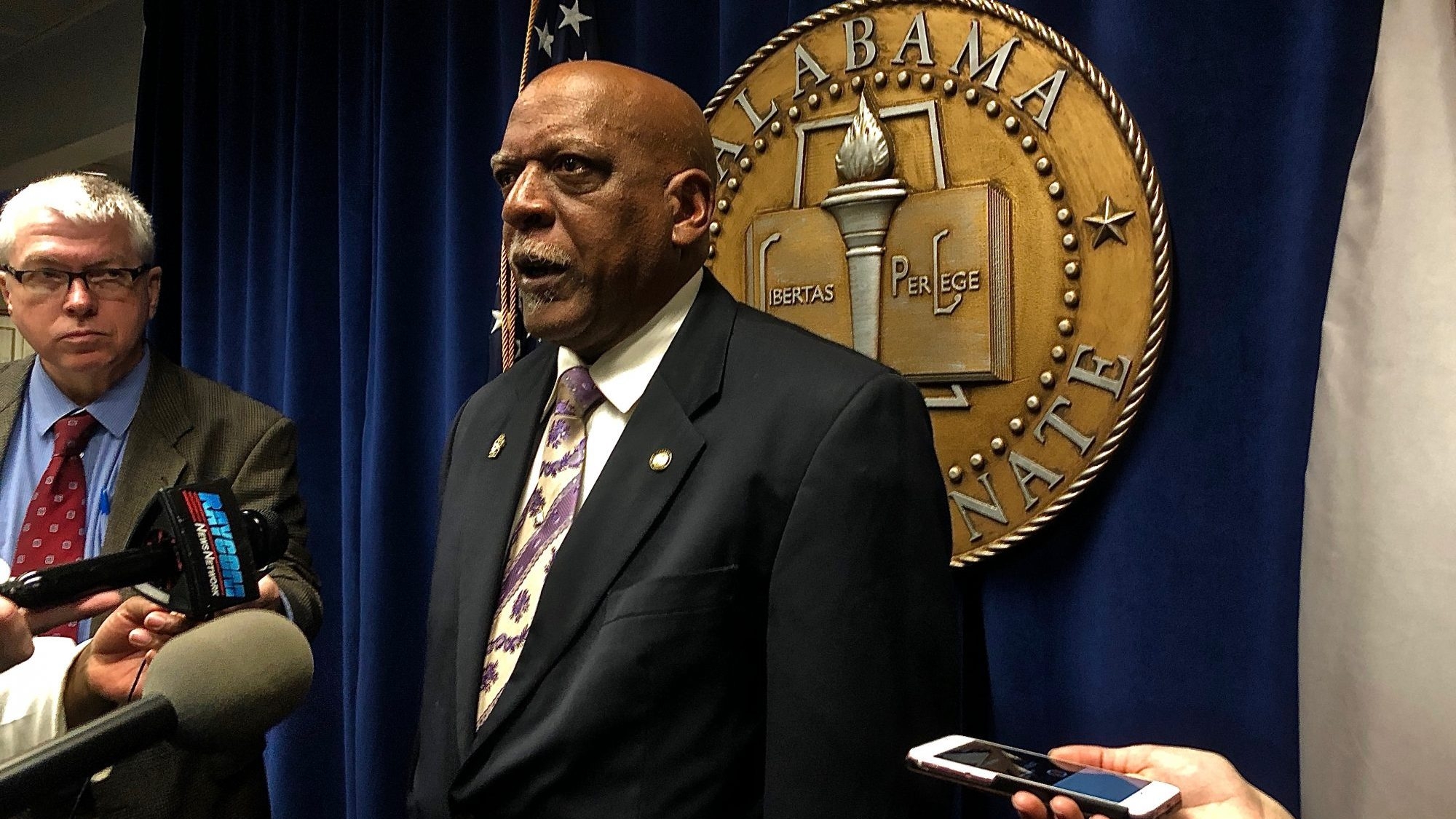A piece of legislation that would have implemented a method to track racial profiling data in police stops didn’t make it out of this year’s legislative session after House Speaker Mac McCutcheon, R-Monrovia, pronounced the bill dead on a radio show Thursday morning.
Sen. Rodger Smitherman, D-Birmingham, who sponsored the legislation, said better leadership in the House could have saved the bill, which earlier this session received a unanimous vote in the Senate.
“It’s very obvious there’s not any coordination. There’s not any kind of guidance that needs to be used in the House when you have 105 people,” Smitherman said. “Frankly, I’ve never seen the House scattered in the way it is right now.”
Smitherman said the chamber was disorganized and the rules of order that have been established in the Legislature “clearly weren’t adhered to.”
“I had to wake up this morning by a call telling me that leadership in the House was on talk radio and they made a statement that they aren’t going to bring the bill up today and didn’t even have the protocol and the common courtesy to even text me and tell me first, the sponsor of the bill,” Smitherman said.
Much of Wednesday was spent in a tit-for-tat scenario between the two chambers of the Legislature as the Senate waited on the House to pass Smitherman’s bill before taking up the Education Trust Fund budget for concurrence.Smitherman was slowing down the Senate in the hopes that the House would pass his bill in time for it to get back up to the Senate for final passage.
A series of short recesses followed and so did tension.
Senators openly and boldly express frustration with the House’s pace this year — a pace that resulted in the death of several Senate bills. At one point, McCutcheon even came to the Senate chambers to confront a senator about his disparaging comments directed at the House.
Smitherman did the same Thursday, making his way to the House after the Senate adjourned sine die.

Alabama House Speaker Mac McCutcheon presides over the Alabama House of Representatives. (Chip Brownlee/APR)
McCutcheon said Thursday that the bill died because the Senate abruptly adjourned Thursday night before the House could get to the bill. The speaker, who finished his second session handling the gavel, said Thursday that there was never any orchestrated effort or strategy to kill the bill.
Rep. Merika Coleman, D-Birmingham, who carried the bill in the House, echoed Smitherman’s disappointment.
“That’s not generally how things are done here,” Coleman said. “Generally, the sponsors of the bills would have been told what was going to happen before we read it in the media.”
The Senate passed the bill in February. It would have defined racial profiling, prohibited law enforcement officers from engaging in it and required law enforcement agencies to track the race of those pulled over for traffic stops. Agencies would have also needed to adopt written policies.
“Everything that they asked to put in this bill, we compromised,” Smitherman said.
Local police departments, county sheriffs and ALEA would have been directed to file annual reports with the Attorney General’s Office from a complaint system created to allow for individuals to submit suspected instances of racial profiling.
“We don’t have a way right now to log every single stop. We don’t have that anywhere. So say if someone feels as if they were racially profiled, where is the data that is going to back that up,” Coleman said.
Agencies already submit reports about their traffic stops but will now need to include the race, ethnicity, color, gender and age of those stopped and the same statistics for the officer who performed the stop. The hope was that the statistics would allow the state to identify if there’s a problem and in which agencies and departments.
Officers are already required to collect racial data in arrests and citations.
Coleman said there seemed to be a concerted effort in the House to kill the bill.
“We had promises over and over again, and the only thing we can go on here is someone else’s word,” Coleman said. “Of course things happen, delays happen, but that bill could have come up on a previous special order and we would have had time to hear that bill yesterday.”
Opponents of the bill have said it would burden law enforcement officers in the field.
Smitherman and Coleman said they plan to refile the bill next year and have higher hopes that the bill will pass outside of an election year.
“In this situation, the necessary courage to just bring it forth did not prevail in the House,” Smitherman said. “I think once you get new leadership, in some areas, that will allow that to take place.”




















































